Movies
Interview: Mattie Do, Laos’ First Female and Horror Director, on ‘The Long Walk’
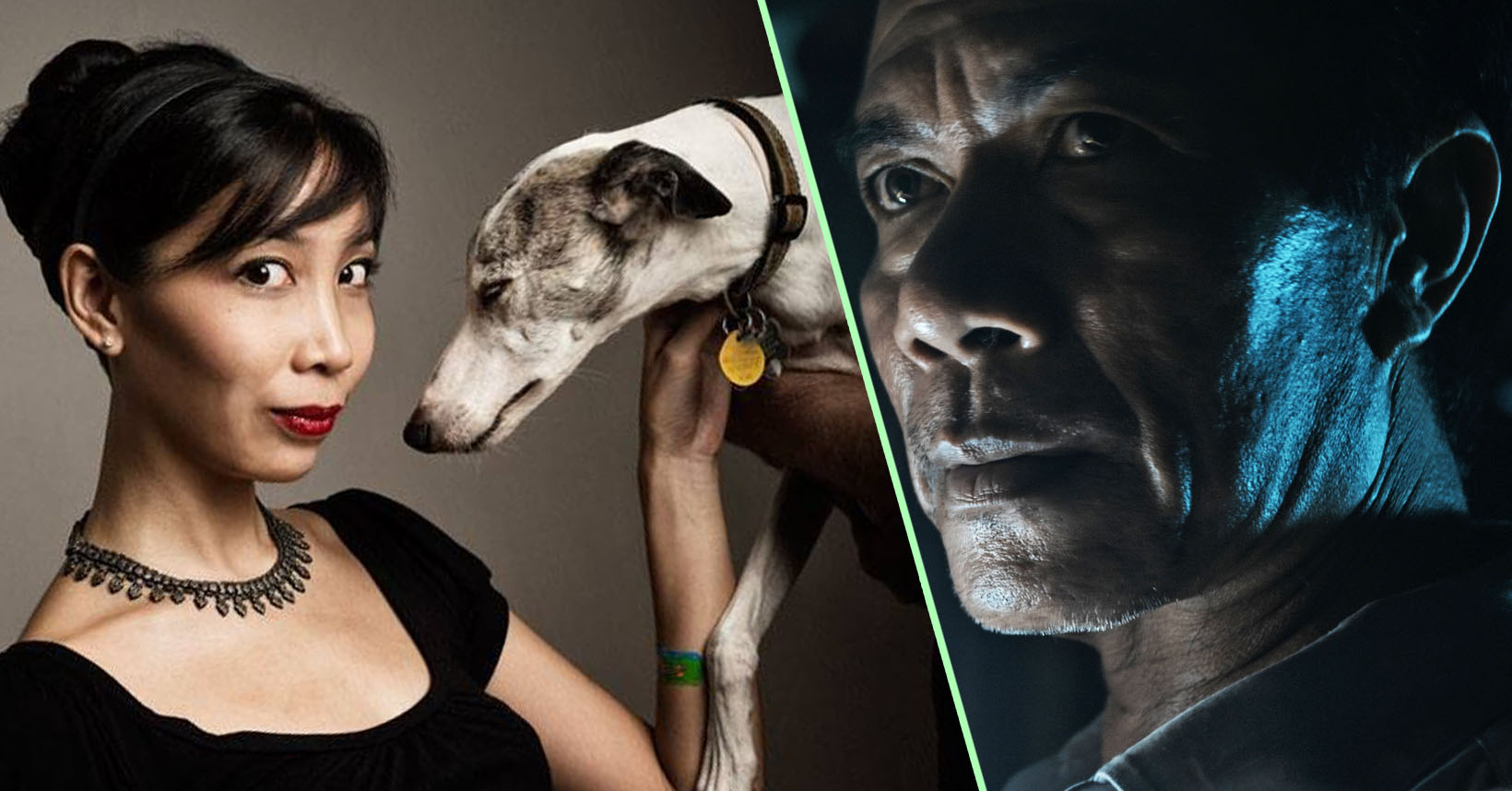
Mattie Do has been making waves in the horror genre in the last few years after blending horror elements with sci-fi and drama, and for producing films in her home country of Laos as the first and only female AND horror director. With her new film The Long Walk recently being released on VOD by Yellow Veil Pictures, we got a chance to sit down with her to discuss her latest mind-bending masterpiece of a film.
The Long Walk is a time travel drama taking place in the near future in rural Laos. A scavenger who has the ability to see ghosts finds out that he can travel back in time to the moment when he was a child where his mother was dying of tuberculosis. He tries to prevent her suffering and his younger self the trauma, but finds his actions have consequences in the future.
Director Do has been a prominent voice since her first film Chanthaly was the first Lao film to screen in well known film festivals. Her next film, Dearest Sister, premiered at the Cannes Film Festival and has since been acquired by the horror streaming site Shudder, opening it up to genre fans more broadly. We got to talk to Do about her newest film, and on poetic filmmaking, the state of the modern blockbuster, and Asian futurism.
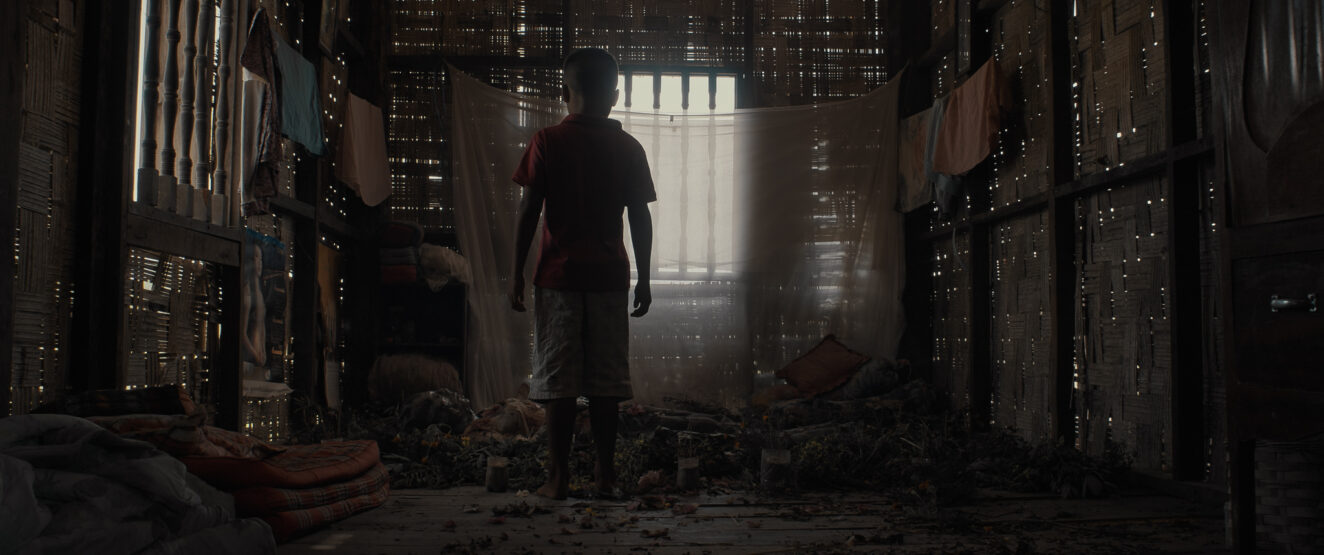
Image courtesy of Yellow Veil Pictures
Bri Spieldenner: Hey Mattie. I’m Bri from iHorror. I love your new film, and I would love to hear some insight about it from you.
Mattie Do: I always think it’s funny when people are like, what are you trying to express as a filmmaker? What would you like to express? Well, what I wanted to express is already on this screen. Otherwise I would be a poet or a novelist, you know?
BS: Yeah. But in a way, I do think that your filmmaking is a little poetic. It’s like a poem.
Mattie Do: I’m glad that people feel that way. Because poetic is an adjective that people use for many things. But poetry is an art that I think, in this modern day, was sort of unacknowledged for a long time. When was the last time you heard anything about poetry? It was at the inauguration of Biden right? With a beautiful young woman. And that made poetry cool again. And so it’s nice to be called poetic because that’s who I think of now.
BS: Already on a tangent, but I would definitely say that a lot of films have lost that emotional aspect to them. I feel like a lot of people, especially American people, don’t read as much anymore. And they’re definitely not reading poetry. So it is very fresh to see a film that is very emotional and has a lot behind the text.
Mattie Do: I think my film is hard for that general audience that you’re talking about though. I think that this is not a film for everyone. And I mean, it’s already a difficult film to categorize and everyone always tries to categorize it, because that’s how films are marketed and presented to the public, right?
A lot of Europeans still have the patience for a challenging film, but I feel like a lot of North Americans are like, oh, horror, and they assume that it’s going to be Scream, or it’s gonna be Texas Chainsaw Massacre, or some kind of jumpscare movie. Then they watch my film, which doesn’t really hold you by the hand, it expects a lot from the audience. And this is something that’s really important to me, because I believe that the audience is smart, I make the kinds of films that I make because I’m f**king tired of being treated like a baby, and being like, sat the f**k down by directors and being like, okay, let me give you the big explain now. And the character literally looks in the camera, and it’s like, let me explain everything that you’ve already seen. I don’t get how that’s happening?
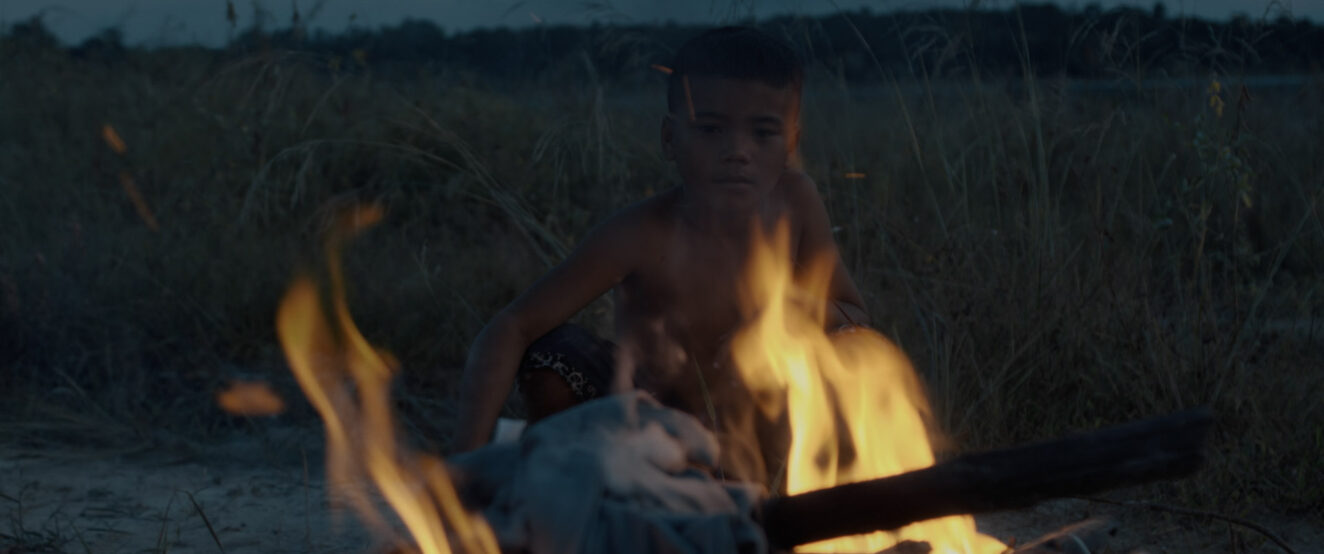
Image courtesy of Yellow Veil Pictures
“I make the kinds of films that I make because I’m f**king tired of being treated like a baby”
Or like the flashbacking, like okay, now we’re gonna have this moment and flashback flashback flashback, because they think that we’re f**king dumb, and that we need to have our hands held through the film. I got tired of that. And so I made this film and I think all my films are kind of like this, where I dole out information, and I expect the audience to connect the pieces, because the pieces are all there. Like, everything’s there. It’s just that they have to find the pieces and they have to connect the pieces. And I think that it’s fun to have this challenge.
Life happens like this film. Like where you have to figure shit out, right? You go to the office one day, and everybody’s giving you that look. They’re all staring at Bri and Bri’s like, the f**k did I do at that party on Friday? Like I said, you have to figure it out. Because nobody’s gonna flash you back.
BS: I love that explanation of it. I totally agree with you, that’s one of my least favorite things about modern filmmaking, especially American filmmaking is that it’s very much almost geared towards children. I appreciate that, like you mentioned, there are aspects of sci fi, horror, drama, you can’t really pin it to one thing. But have you ever had problems with finding an audience or marketing your films for that reason?
Mattie Do: I mean, I don’t think that my films are terribly marketable so I never thought about it in this way. These are questions for filmmakers like myself, that are difficult to answer, because I’m not making a film for a demographic. I know there are people out there for my film. And I know that there are people out there who need and want something unique and something personal and something intimate, something that isn’t easily put into a box. And that’s my audience. I can’t say that that’s my market. Because we’re probably rare creatures, not enough to sustain a huge box office Marvel hit. But why isn’t that enough?
In the business of film, people subsidize films all the time, you’ll have the popcorn crowd pleaser and then, on the side, you make this kind of film that is extremely personal that people are seeking and people are desiring and that people who are tired of general fare might want. But it’s okay, if it’s not this big giant hit, because your explosion film was a hit and and made enough money for your company to be able to finance films like this. This is my belief. But I think that the big capital Dollar Sign is so prevalent on everyone’s minds, that they forgotten that they can do business like that, too.
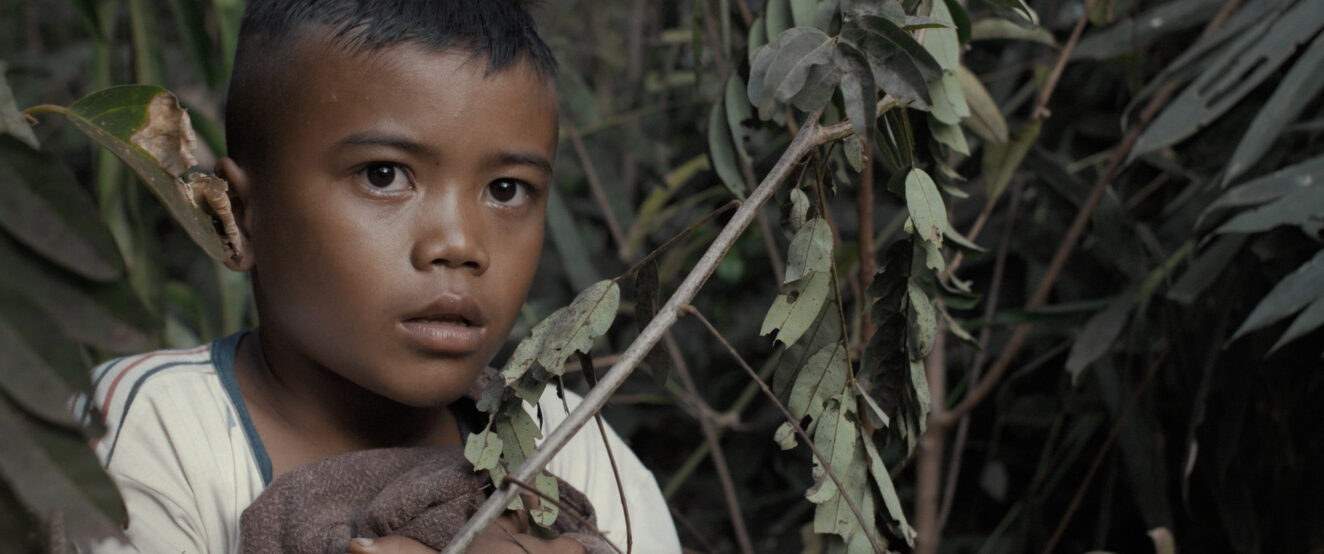
Image courtesy of Yellow Veil Pictures
BS: I totally agree with you. So let’s get to my first question. *laughs*
Mattie Do: We haven’t even gotten to the first question yet!
BS: So I noticed that there are a lot of similar themes in your films such as taking care of a sick relative. Is that based on personal experience of yours?
Mattie Do: Well, I took care of my mother when she had cancer and she was terminally ill. And I was at her side 24/7. And I held her while she died. So the effect that has on the human being is bound to ripple out into the rest of their lives. And so all of my films show characters that are flawed, and that have to deal with human trauma and with human inevitability and human consequences. Because, yes, it is very personal. And when you’ve been marked by death like that, when you’ve witnessed it, and when you felt the warmth seeping out of a human being. It’s something you never forget.
BS: I’m sorry that you’ve had that experience, but I am glad that you get to explore it in your films and I do think that it does make a mark.
Mattie Do: I think one of the themes that maybe you hadn’t explored that’s also really common in all my films. One of the most horrific themes that I always explore in my films is that the horror is not the ghost. It’s not the supernatural element. It’s not the stereotypical idea of what horror is. But the horror happens to be the humans surrounding you and happens to be society. And it happens to be humans and their lack of humanity for each other and their greed and how easily corruptible a human is and how cruel a human can be. And that’s something that I think is pervasive in a lot of my work.
BS: Yeah, for sure.
Mattie Do: I’ve never been hurt by ghosts before, Bri, but I’ve been hurt by a lot of humans.
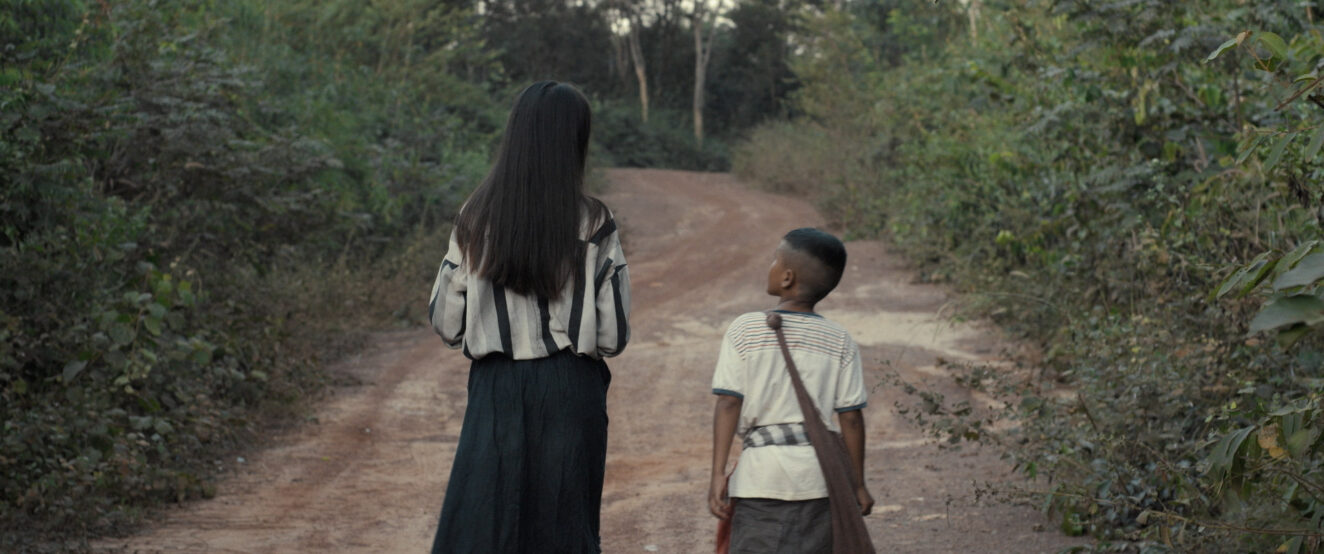
Image courtesy of Yellow Veil Pictures
“I’ve never been hurt by ghosts before, but I’ve been hurt by a lot of humans.”
BS: Very fair point. I’d have to agree with that. On that subject, what does horror look like in Laos?
Mattie Do: What’s really contradicting about Lao is they’re extremely superstitious. The majority of the population believes in ghosts, it’s an accepted thing. It’s a normal thing. So no one would tell you that you’re weird or crazy, or psycho if you felt like you saw ghosts, or you have a ghostly encounter. And sometimes it can be not a scary thing. Sometimes it can be a comforting presence that you felt the presence of an ancestral spirit or a protective spirit.
But at the same time, they’re also terrified of ghostly encounters and spirits, and curses and black magic and witchcraft. We’re an extremely folk horror driven society. A lot of people who think of folk horror they think of The Witch or The Wicker Man, or Hereditary or white people horror, but the reality is that we Asians, and we Africans and people of color have had a longer lasting population with folk horror elements, and with paganism, and animism and occult lasting for centuries and centuries before any of this modern puritanical witchcraft ever existed.
And so there’s a very strong fear of the unknown, or the older powers that be or the spiritual, but there’s also a very healthy aspect to this fear where, because it’s so accepted as real, that it’s also a part of our lives and that we can live with it.
So if horror is present, it’s real. It’s every day. But the kind of horror I think I bring on the screen isn’t just the supernatural. It’s the daily existence of life, of how you survive when people have forgotten you or left you behind. How do you survive when you’re consumed by materialism and you want to be this super rich and wealthy powerful human being or influencer or beautiful thing. It’s when we humans get corrupted, and this to me is the horror of Laos and the horror of everywhere for that matter.
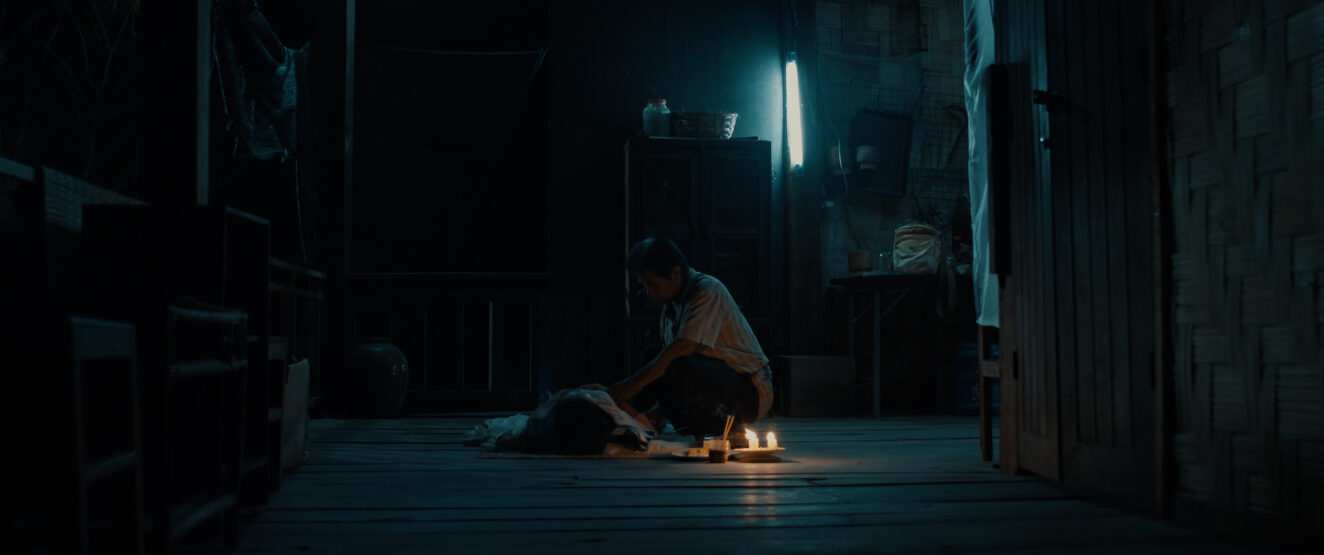
Image courtesy of Yellow Veil Pictures
“The reality is that we Asians, and we Africans and people of color have had a longer lasting population with folk horror elements, and with paganism, and animism and occult lasting for centuries and centuries before any of this modern puritanical witchcraft ever existed.”
BS: And on the subject of the horrors and the people surrounding your film. I really love how complicated a lot of the characters are, especially the lead. I was wondering what your inspiration for the characters were in The Long Walk?
Mattie Do: Actually, we’d never thought about who the inspiration for the old man was in The Long Walk. He’s just a character that is really built from what I assume all humans would feel even from myself, but I’m not a serial killer, I haven’t killed anyone or anything. But a lot of the complicated emotions that the old man goes through are similar to the emotions that I went through when I lost my dog and lost my mother. My husband is my screenwriter. And when we lost my dog, I’m sure he also went through some complex emotions as well, because we had to euthanize my dog at 17 years old.
I think it’s very human, for us to associate with the old man and to have feelings of regret and of loss. Who wouldn’t feel if they had such a terrible loss in their lives? Who wouldn’t feel like they would want to go back and try and implement a change to make it better for themselves to make it less painful. And this is what the old man is, I think he’s all of us as humans. They’re all terribly flawed, all the characters in The Long Walk. And I think that maybe I’m a little bit cynical, but most humans are flawed. I think all humans are extremely flawed in that we make bad choices.
If you’ve seen my other work Dearest Sister, it’s all about a spiraling descent of bad choices and bad choices compiling on top of each other until you’ve reached this point of no return. Of course, I take that to the extreme in all my films, but I kind of like to push people to the edge in my work. And I like to show them a scenario where if these decisions had compounded and you are forced to step over that line in the sand that’s been redrawn so many times, what could happen, and how bad can it get? And how much worse can it get?
So I wouldn’t say that there was like any one inspiration to the character, but I think that I am trying to accumulate my own feelings, as well as what I think is human feeling into him. And that’s why it’s easy to really like him, even though, when he becomes a dark, super horrible serial killer that’s killed like 20, or 30, young girls, y’all are like, oh my God, no, he’s a monster now. Don’t we love him? You’re not that man. And he says, I’m not a bad man. But the reality is, when the film opens, he’s already killed nine women. Like, this is the guy that we’re sympathizing with, this is the character that we love. And I think that that’s something that I want people to think about, too, is just because we can associate ourselves in him. Does that make him a good person?
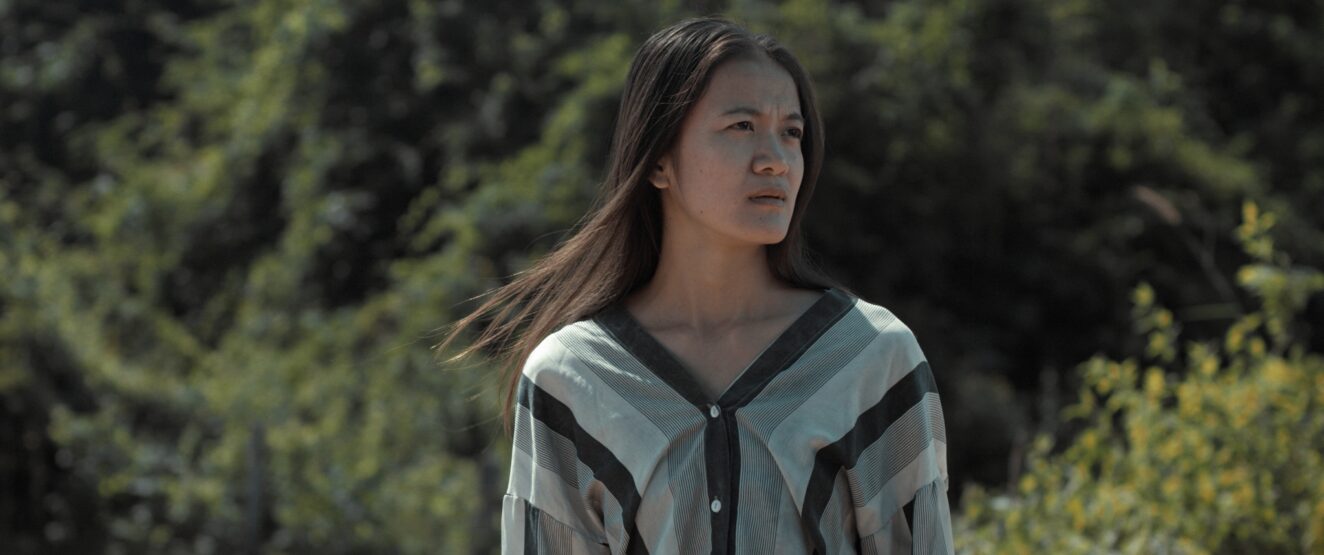
Image courtesy of Yellow Veil Pictures
BS: I have a question about the ending of the film. Since it is, in my opinion, very dark. But at the same time, it doesn’t end necessarily on a dark note. How do you see the ending of your film? Do you see it as hopelessly bleak?
Mattie Do: I think it’s ultra dark. Not hopeful at all. Really, the ending is like, ridiculously dark. One of the first words that I heard coming out of the first screening we had in Venice, from one of my crew members was, that was really bittersweet. And it’s true. It is a bittersweet ending, it’s really gorgeous, the setting is wonderful with a sunrise, the road that we’re all familiar with that we’ve all come to know, the two characters that we also have come to know and love. And the reunion that the two of them have, it seems so happy and they’re happy to see each other, you can see that they’re extremely happy to be together, but they’re trapped.
Neither of them have gotten to move on. No one in the rest of the world knows where their bodies are. So no one’s going to be able to dig them up to do the right funeral rites to let them move on according to Lao belief. And so they’re stuck in this sort of in between space, in this limbo, in this purgatory, but at least are stuck together, at least, they’re with the version of themselves that they love the most. And they can be like eternal companions in this positive state.
But the reality is that she never got to move on. That was her main goal and her main desire at all to begin with was to be able to move on and be reborn, because we’re Buddhist in Laos, and that’s what happens if you die, you get reborn until you reach Nirvana. But that doesn’t happen. It doesn’t happen for the little boy either. And she straight up says to him as an older version of himself, I don’t know where you go, and she loves them both. She loves him, but by that time, she kind of doesn’t give a f**k you know? And in her own way, she’s like, I have to move on with what’s left. And it’s a super sad and dark ending. It’s not hopeful at all, but at least they’re stranded into perpetuity together.
BS: I love that explanation from you. Yeah, it is very dark. So I love that.
Mattie Do: It’s very deceiving because when you first see her smile, she’s excited to see him and he’s so excited. He raises his hand. We didn’t subtitle that. But he basically says, “Hey! girl!” he screams “hey, lady.” And then she picks up the extra orange for him. And the sun is just gorgeous. And he’s running to her and she’s walking to him and you feel so happy. But then all of a sudden you realize what’s happened. And you’re like, dude that sucks.
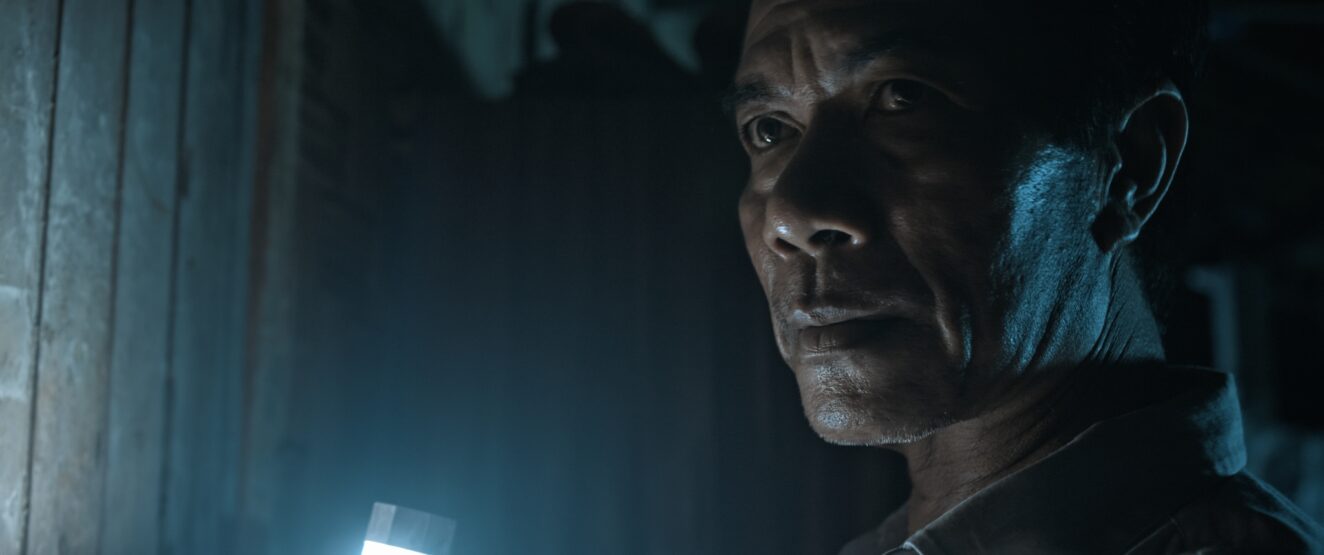
Image courtesy of Yellow Veil Pictures
BS: What did you base the futurism aspects on in the film? Where did you get this kind of future? Or why did you even choose to set it in the future?
Mattie Do: It would be easier for me to set it in the future than to set it in the past. So if I were to set the old man now in present day. And then I were to go back 50 years then I’d have to deal with costumes, the budget would be ridiculously high then I have to deal with portraying a period piece, basically. Because in Laos 50 years ago, it was a period film. I mean, even in the States 50 years ago is a period film, right? Like the cars are different. Everything’s different. So budget constraints helped a lot.
But also having it be set in the future was a huge commentary on how little the world moves, and how stagnant the world actually is, especially in a country like mine. I live in a developing country, people call it a third world country. And there’s all of these assumptions that people make about third world countries, that we have nothing that we’re like beggars, and that we’re toothless, poor, brown people who have never encountered technology before, but it’s based on reality. Like right now, you can come here and yes, there’s still dirt roads, yes, there are still villages that look like the old man’s house. And the market still looks like that. But at the same time, you can go buy vegetables from a market lady, and they’ll ask you for your QR code. And they’ll ask you to scan it with your phone. You know what I mean? And now it’s common with Venmo in the States, right?
But there was a period of time where there would be like Western tourists who would come here and we had had advancements in Asia, that were so far beyond the advancements of the Western world, that they couldn’t understand it. And they couldn’t accept it because they were also in a fresh market, with a dirt road, surrounded by people wearing traditional clothes, who spoke a language that wasn’t English. And it was like they had this mental block about no, no, no, these aren’t advancements, they’re still poor brown people, right?
And so I thought it would be fun to set something in an Asian futurism scenario, and also to show people that for as many advancements and technological progresses, we might have in 50-60 years, the human condition is still going to be present. It’s one of the things that I actually really detest about sci fi films is like, yay, we got the flying cars. We got the holographic billboards like in Blade Runner. Everything’s urban, where the f**k did the country people go? Human problems are still human problems, even if you got a flying car, who pays the bills on that flying car?
BS: I feel like the assumption is that outside of the cities, everything is destroyed by the environment personally, but that’s me insinuating.
Mattie Do: So it’s like Mad Max out there. In the metropolis you’re fine. But the food has to come from somewhere. And I guarantee you it’s not the city.
'Civil War' Review: Is It Worth Watching?
Follow our new YouTube channel "Mysteries and Movies" here.
Movies
‘Longlegs’ Creepy “Part 2” Teaser Appears on Instagram
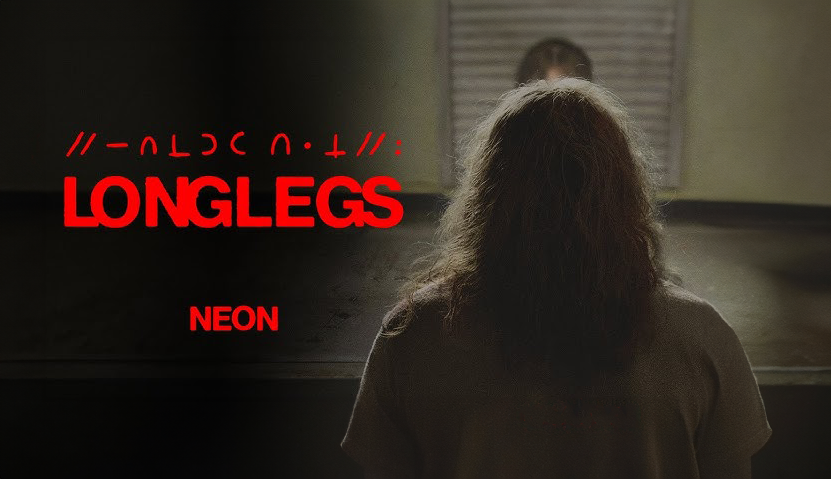
Neon Films released an Insta-teaser for their horror film Longlegs today. Titled Dirty: Part 2, the clip only furthers the mystery of what we are in for when this movie is finally released on July 12.
The official logline is: FBI Agent Lee Harker is assigned to an unsolved serial killer case that takes unexpected turns, revealing evidence of the occult. Harker discovers a personal connection to the killer and must stop him before he strikes again.
Directed by former actor Oz Perkins who also gave us The Blackcoat’s Daughter and Gretel & Hansel, Longlegs is already creating buzz with its moody images and cryptic hints. The film is rated R for bloody violence, and disturbing images.
Longlegs stars Nicolas Cage, Maika Monroe, and Alicia Witt.
'Civil War' Review: Is It Worth Watching?
Follow our new YouTube channel "Mysteries and Movies" here.
Movies
Melissa Barrera Says ‘Scary Movie VI’ Would Be “Fun To Do”
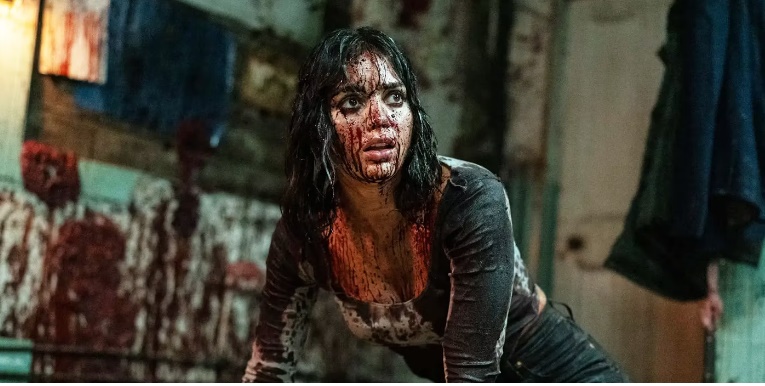
Melissa Barrera might literally get the last laugh on Spyglass thanks to a possible Scary Movie sequel. Paramount and Miramax are seeing the right opportunity to bring the satirical franchise back into the fold and announced last week one might be in production as early as this fall.
The last chapter of the Scary Movie franchise was almost a decade ago and since the series lampoons thematic horror movies and pop culture trends, it would seem they have a lot of content to draw ideas from, including the recent reboot of slasher series Scream.
Barerra, who starred as final girl Samantha in those movies was abruptly fired from the latest chapter, Scream VII, for expressing what Spyglass interpreted as “antisemitism,” after the actress came out in support of Palestine on social media.
Even though the drama wasn’t a laughing matter, Barrera might get her chance to parody Sam in Scary Movie VI. That is if the opportunity arises. In an interview with Inverse, the 33-year-old actress was asked about Scary Movie VI, and her reply was intriguing.
“I always loved those movies,” the actress told Inverse. “When I saw it announced, I was like, ‘Oh, that would be fun. That would be so fun to do.’”
That “fun to do” part could be construed as a passive pitch to Paramount, but that’s open to interpretation.
Just like in her franchise, Scary Movie also has a legacy cast including Anna Faris and Regina Hall. There is no word yet on if either of those actors will appear in the reboot. With or without them, Barrera is still a fan of the comedies. “They have the iconic cast that did it, so we’ll see what goes on with that. I’m just excited to see a new one,” she told the publication.
Barrera is currently celebrating the box office success of her latest horror movie Abigail.
'Civil War' Review: Is It Worth Watching?
Follow our new YouTube channel "Mysteries and Movies" here.
Lists
Thrills and Chills: Ranking ‘Radio Silence’ Films from Bloody Brilliant to Just Bloody
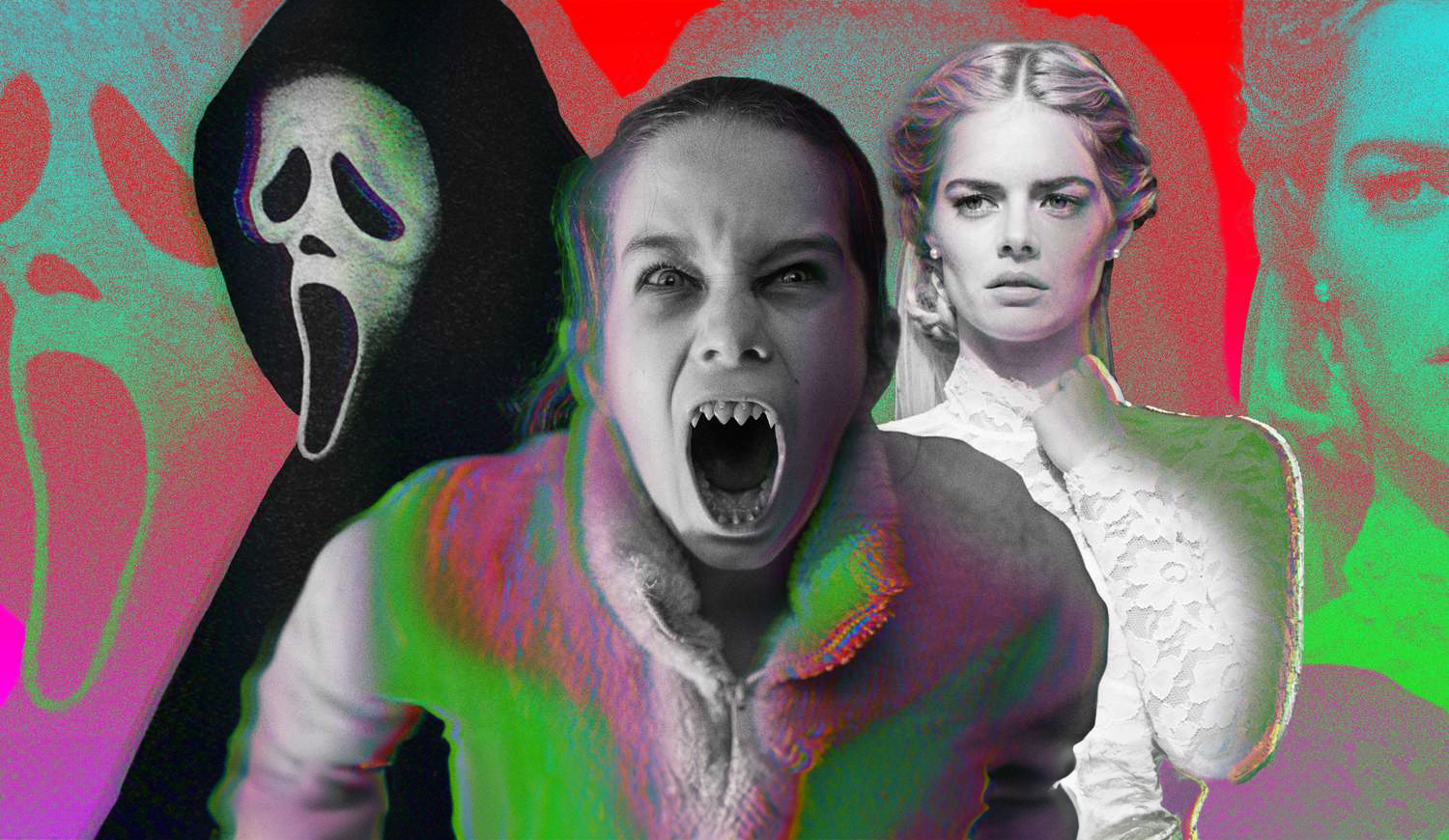
Matt Bettinelli-Olpin, Tyler Gillett, and Chad Villella are all filmmakers under the collective label called Radio Silence. Bettinelli-Olpin and Gillett are the primary directors under that moniker while Villella produces.
They have gained popularity over the past 13 years and their films have become known as having a certain Radio Silence “signature.” They are bloody, usually contain monsters, and have breakneck action sequences. Their recent film Abigail exemplifies that signature and is perhaps their best film yet. They are currently working on a reboot of John Carpenter’s Escape From New York.
We thought we would go through the list of projects they have directed and rank them from high to low. None of the movies and shorts on this list are bad, they all have their merits. These rankings from top to bottom are just ones we felt showcased their talents the best.
We didn’t include movies they produced but didn’t direct.
#1. Abigail
An update to the second film on this list, Abagail is the natural progression of Radio Silence’s love of lockdown horror. It follows in pretty much the same footsteps of Ready or Not, but manages to go one better — make it about vampires.
#2. Ready or Not
This film put Radio Silence on the map. While not as successful at the box office as some of their other films, Ready or Not proved that the team could step outside their limited anthology space and create a fun, thrilling, and bloody adventure-length film.
#3. Scream (2022)
While Scream will always be a polarizing franchise, this prequel, sequel, reboot — however you want to label it showed just how much Radio Silence knew the source material. It wasn’t lazy or cash-grabby, just a good time with legendary characters we love and new ones who grew on us.
#4 Southbound (The Way Out)
Radio Silence tosses their found footage modus operandi for this anthology film. Responsible for the bookend stories, they create a terrifying world in their segment titled The Way Out, which involves strange floating beings and some sort of time loop. It’s kind of the first time we see their work without a shaky cam. If we were to rank this entire film, it would remain at this position on the list.
#5. V/H/S (10/31/98)
The film that started it all for Radio Silence. Or should we say the segment that started it all. Even though this isn’t feature-length what they managed to do with the time they had was very good. Their chapter was titled 10/31/98, a found-footage short involving a group of friends who crash what they think is a staged exorcism only to learn not to assume things on Halloween night.
#6. Scream VI
Cranking up the action, moving to the big city and letting Ghostface use a shotgun, Scream VI turned the franchise on its head. Like their first one, this film played with canon and managed to win over a lot of fans in its direction, but alienated others for coloring too far outside the lines of Wes Craven’s beloved series. If any sequel was showing how the trope was going stale it was Scream VI, but it managed to squeeze some fresh blood out of this nearly three-decade mainstay.
#7. Devil’s Due
Fairly underrated, this, Radio Silence’s first feature-length film, is a sampler of things they took from V/H/S. It was filmed in an omnipresent found footage style, showcasing a form of possession, and features clueless men. Since this was their first bonafide major studio job it’s a wonderful touchstone to see how far they have come with their storytelling.
'Civil War' Review: Is It Worth Watching?
Follow our new YouTube channel "Mysteries and Movies" here.
-

 News6 days ago
News6 days agoWoman Brings Corpse Into Bank To Sign Loan Papers
-
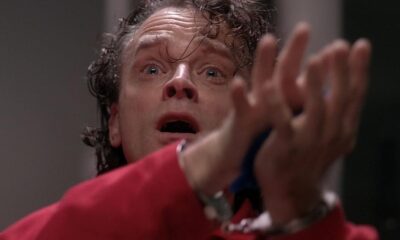
 News5 days ago
News5 days agoBrad Dourif Says He’s Retiring Except For One Important Role
-
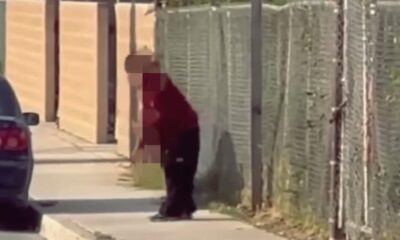
 Strange and Unusual5 days ago
Strange and Unusual5 days agoMan Arrested for Allegedly Taking a Severed Leg From Crash Site And Eating It
-
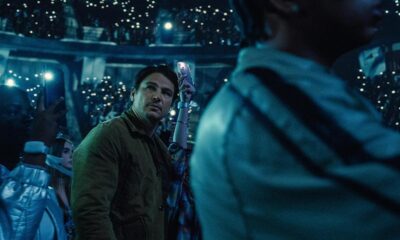
 Movies6 days ago
Movies6 days agoPart Concert, Part Horror Movie M. Night Shyamalan’s ‘Trap’ Trailer Released
-
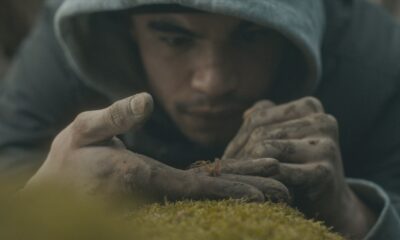
 Movies6 days ago
Movies6 days agoAnother Creepy Spider Movie Hits Shudder This Month
-
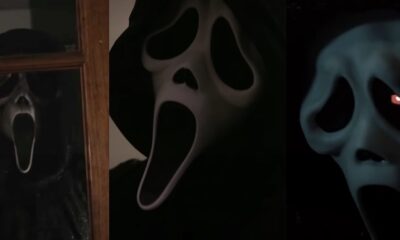
 Editorial5 days ago
Editorial5 days ago7 Great ‘Scream’ Fan Films & Shorts Worth a Watch
-
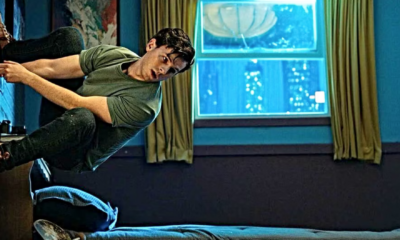
 Movies4 days ago
Movies4 days agoSpider-Man With a Cronenberg Twist in This Fan-Made Short
-
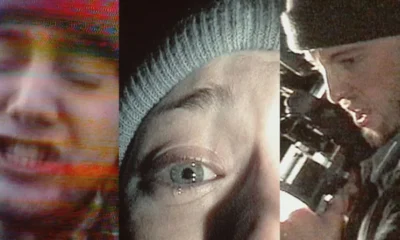
 News3 days ago
News3 days agoOriginal Blair Witch Cast Ask Lionsgate for Retroactive Residuals in Light of New Film
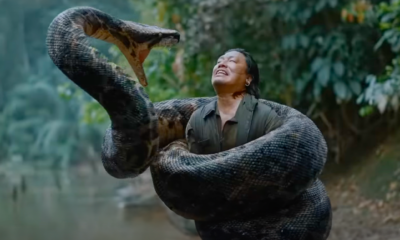

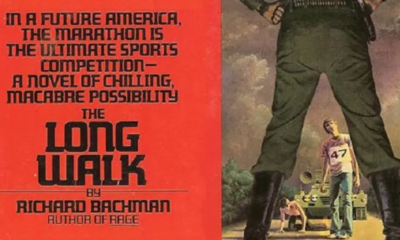

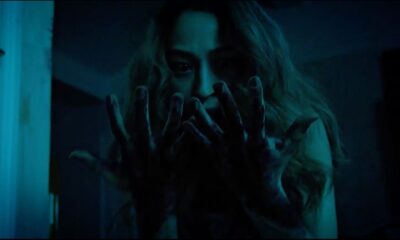


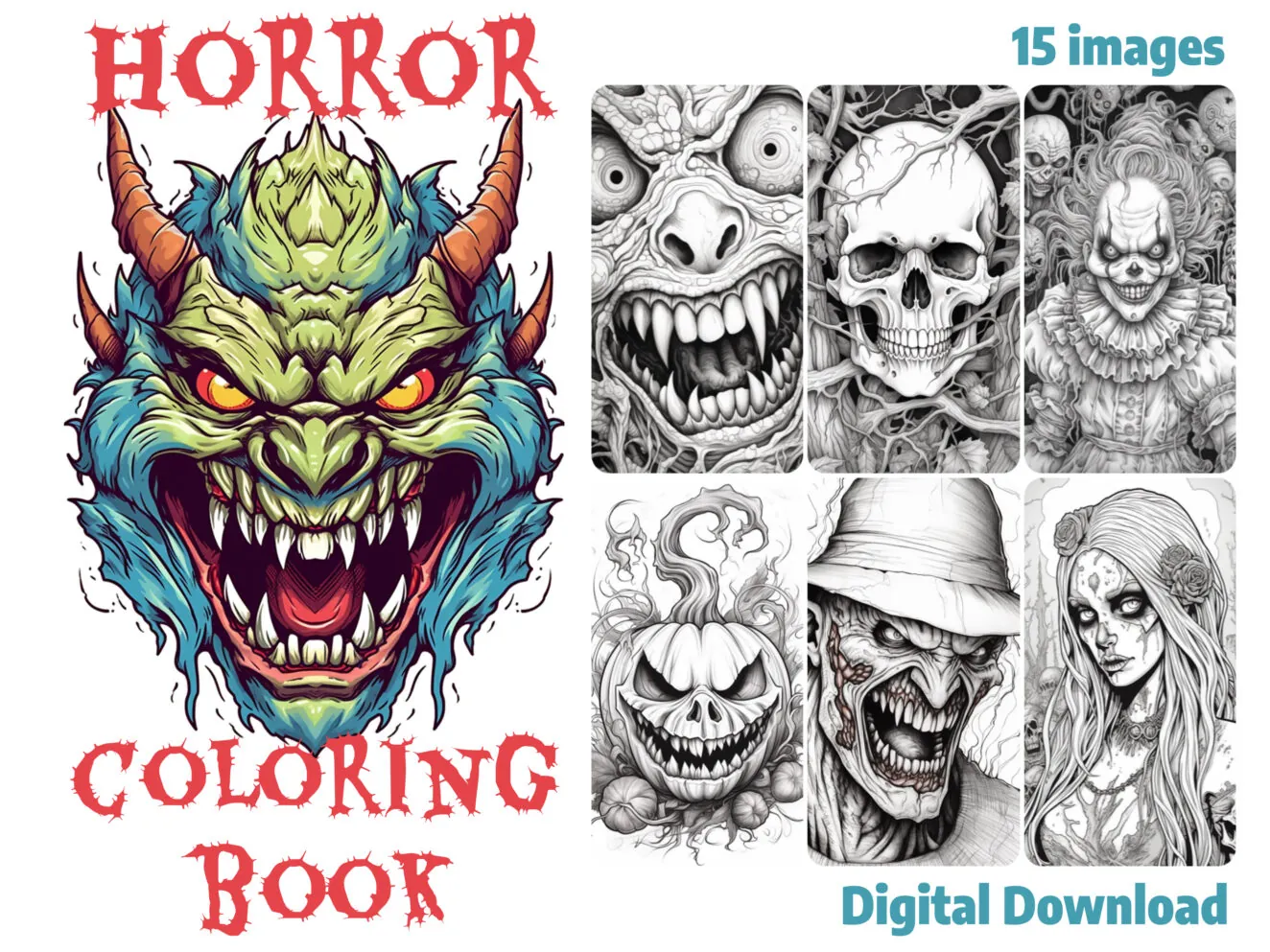
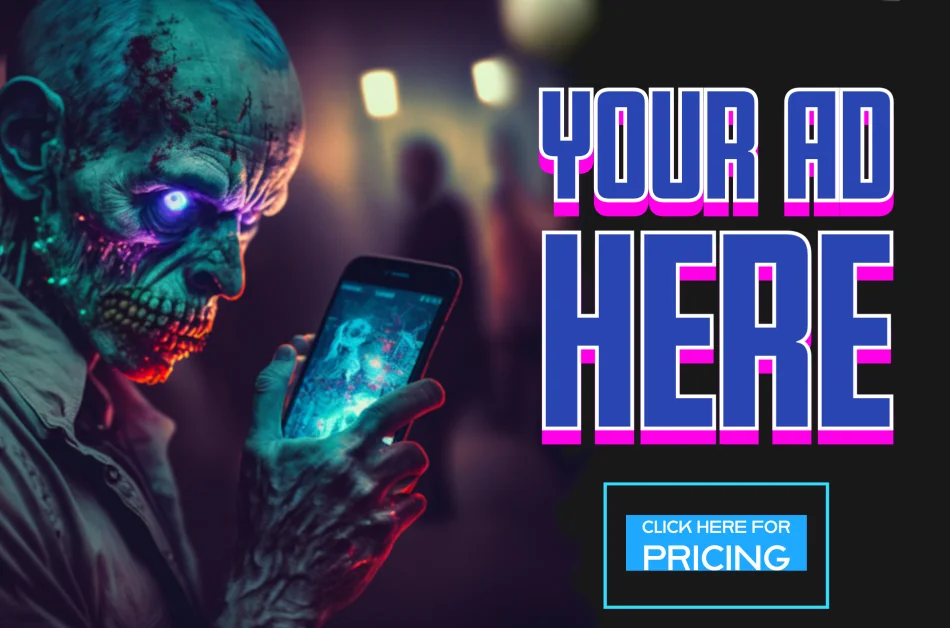

















You must be logged in to post a comment Login